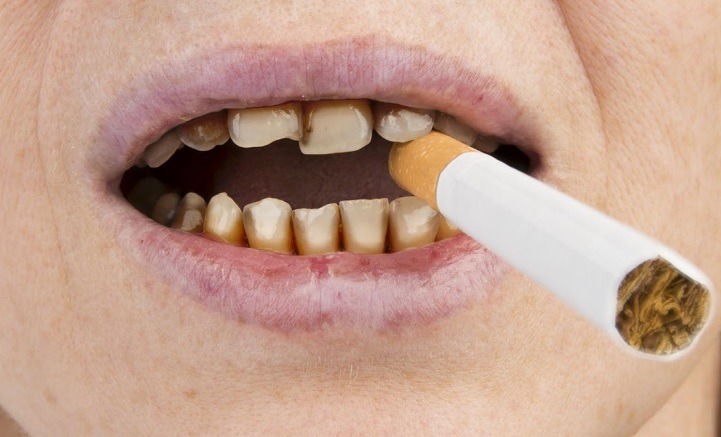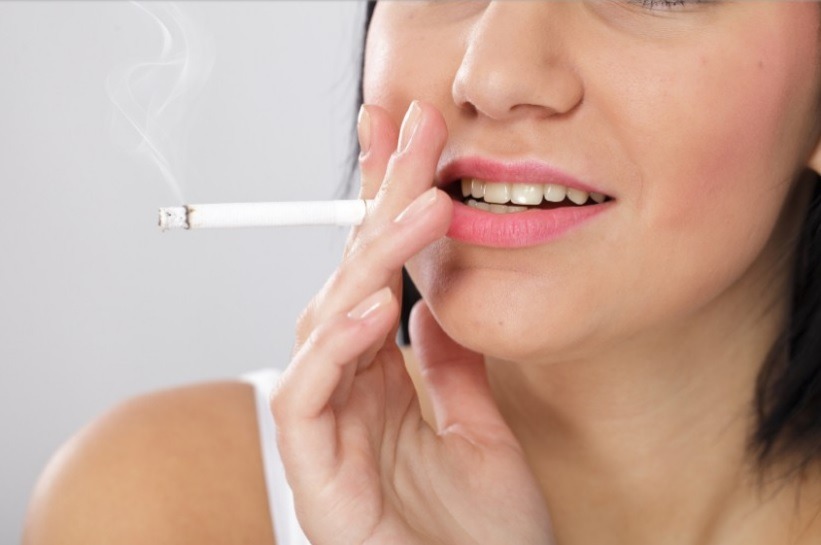Smoking and Oral Health
Smoking not only can impact your health, but it also affect your mouth. Those who do smoke when compared to non-smokers have a higher risk of developing gum disease, complications after oral surgery, oral cancer, infections and tooth loss.
The most common problems encountered by smokers are:
- Gum / Periodontal disease – increased bone and gum loss
- Oral cancers
- Damage to soft tissue (burns)
- Poor healing
- Tooth decay / Tooth Loss
- Dry mouth
- Altered taste
- Bad breath (halitosis)
Impact on Gum Disease

Smoking affects the blood supply of the gums, reduced blood flow causes the gums to be susceptible to gum disease and have a slower healing response.
Smokers gums may appear thicker, spongy, can range from red to purple in some cases. Bacteria and food debris called dental plaque can contribute to gum disease, if left untreated it can harden to form calculus (tartar). This combination of plaque and/or tartar causes irritation of the gum around the teeth and due to the poor healing response of the gums, gum disease occurs.
If periodontal disease is left untreated, the structure that holds the tooth in place in the mouth becomes damaged. Meaning that the bone and gums pull away from the tooth, leading to the tooth becoming loose, like a tree with no soil.
What are some Signs of Gum Disease?
- Red, purple hue, swollen gums
- Possible tenderness
- Gums that appear to be pulled away from your teeth
- Bad taste / bad breath
- Bleeding gums
- Loose teeth
- Discharge of pus from your gums
Smoking can contribute to oral cancers. The risk of cancer increases with increased smoking use. Studies have shown that when comparing smokers and non-smokers, smokers were at greater risk of developing oral cancers.
Oral cancer can include the tongue, cheek, roof or floor of the mouth, mouth, lips and throat.
Early diagnosis is important, so getting a regular check-up with your GP and Canberra dentist is advised.
Possible signs of Oral Cancer can include:
- Persistent mouth ulcer that does not disappear
- White or red like patch in the mouth
- Noticeable or visible changes in the mouth
- Swelling
It is important to see your dentist Canberra or Doctor immediately, if you have any concerns with the health of your mouth.
Prevention of dental issues and smoking:
If you are a smoker and would like to prevent gum and teeth problems
-
Quitting – quitting will help your gums return and respond as per usual like non smokers. The gums may bleed more than usual when quitting, speak to your dental professional and how to bring your gums back to health after quitting. If you are interested in Quitting speak to your Doctor or call the Quitline for support.
-
If you’re not ready to quit, you can try to reduce the number of cigarettes smoked in a day.
-
Maintenance is important – brushing your teeth twice a day (morning and night), cleaning in between your teeth with floss. Seeing your top rated Canberra dentist regularly every 6 months for a check-up and teeth cleaning.
-
Preventing a dry mouth – making sure your mouth is moist, sipping water and using products that stimulate saliva flow.


